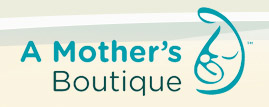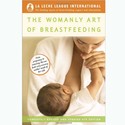According to Postpartum Support International, up to 20% of women suffer from Postpartum Depression or Anxiety. Over the next few weeks, we’ll feature the voices of local women who share their experiences, as well as some resources for those seeking support.
Kirsten Pitini didn’t have the “baby blues.” She didn’t really have postpartum depression, either–she kept passing that Edinburgh screening test and she never felt terribly sad. Instead, she felt panicked. Her worst fears flashed before her eyes like terrifying movies–she drove over a bridge and saw images of her children drowning, so she felt like she had to plan out which child she’d save first.
Kirsten’s days became filled with small rituals she felt certain would help save her children: she put them in specific outfits she thought would keep them safe; she’d rearrange the diapers on the changing table so the baby wouldn’t roll out the window; she repeatedly rearranged the furniture in her house.
Moreover, she felt certain she herself was going to die and she feared her baby would have no access to breastmilk.
Eventually, Kirsten sought help. She got a referral to a psychiatric clinic, who then told Kirsten they couldn’t help her because she didn’t have a diagnosis. It became a refrain: nobody would treat her without a diagnosis, or see her to diagnose her.
One day, she called a clinic who actually said she see patients with her struggles, but they had no room in their schedule for her. Kirsten called the next number on her list, a different number, that led her to the office she’d just called. This time, the receptionist said, coldly, “I said we don’t have room for you,” and hung up the phone.
Desperate, Kirsten spoke with our store owner, Judy, for resources. Eventually, she found a place near the shop who agreed to have her come in and meet with them. “By this point, my baby was 4 months old and I’d been looking for help for 10 weeks,” Kirsten says. “I was not rational, and the therapist who agreed to see me flat out told me she had no experience with postpartum depression.”
“I got so panicked, and told this therapist all the little things, all the rituals I was going through and how my greatest fear was that I’d die and my baby would have no access to breastmilk. Her response was that my baby could always have formula.
So I realized she was not listening to me, that she was not hearing my concerns. She told me not to worry about it.”
Having seen a therapist, Kirsten was able to finally get in touch with another therapist, but again could not find someone specializing in postpartum mood disorders. She found a psychologist, who diagnosed her with mild depression and also with anxiety and Obsessive Compulsive Disorder. This psychologist was obligated to refer Kirsten to a psychiatrist to discuss medications–and the psychiatrist met with Kirsten for just a few moments before writing a two different prescriptions. Kirsten couldn’t get answers, couldn’t find someone to listen to her or explain her options.
She had no idea what warning signs might be, no idea who to have her husband call if she exhibited worrisome behaviors, and no longer felt safe sharing the details of her fears–her anxiety built until she feared her children would be taken away and she would be committed if she was honest about her experiences.
The second psychologist was able to work with Kirsten a half-dozen or so sessions to give her exercises to help control anxiety. Kirsten began to reduce her ritualistic behaviors and approach situations (like driving over bridges) rationally. “I felt like a veil was lifted and I stopped having such severe anxiety,” she says. But by this time her child was a year old.
Not until Kirsten began doula training did she learn more about the spectrum of postpartum mood disorders and meet with some semi-local therapists who specialize in this area of support. She was able to meet with these professionals and attend presentations that helped validate her feelings and gave her language to describe what she was experiencing.
Kirsten, like so many women who live outside urban areas, has no support options close enough to her home to make in-person visits practical with young children to care for. The best resource she found was Postpartum Support International, which offers virtual support as well as telephone support and the option for periodic in-person presentations/group sessions.
In our next post, we’ll speak with Brittany Edge from PSI to learn more about postpartum mood disorders, warning signs, and what to do for relief.
Did you struggle with postpartum anxiety? Leave us a comment to share resources you found helpful.











[…] Postpartum Anxiety: What Are the Symptoms & What Can We Do? Postpartum Mood Disorders: Beyond the Blues […]
[…] is the third post in our series about postpartum mood disorders. Last week, we heard from Kirsten Pitini about her experiences suffering from postpartum anxiety. We also learned about Postpartum Support […]